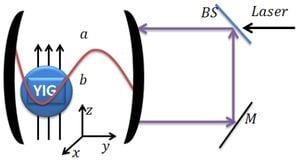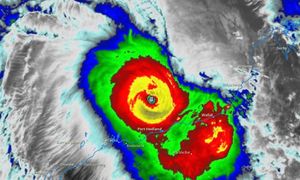Kirill Dmitriev, the head of the Russian Direct Investment Fund (RDIF), is once again gaining attention for his significant connections between the Kremlin and Washington, particularly during pivotal discussions concerning U.S.-Russia relations. S. Whitcoff, the special envoy of the Trump administration, highlighted Dmitriev's pivotal role as he met with Russian President Vladimir Putin and other officials during his recent diplomatic visit to Moscow.
During his three-hour dialogue with Putin, Whitcoff remarked on the importance of individuals like Dmitriev, stating, "There is a gentleman in Russia named Kirill, he has done much for this [renewing the dialogue between Moscow and Washington]... He became an important conduit connecting the two sides," as reported by CNN. Whitcoff pointed to Dmitriev’s work and influence as helping to facilitate communications and ease tensions between the two nations, bridging gaps and fostering potential negotiations.
Interestingly, it is believed this reference to Kirill was directed at Dmitriev, who has engaged with officials from the Trump administration since 2017. This relationship prompted discussions about various political and economic issues, including the initiatives surrounding the pandemic and vaccination diplomacy, where Dmitriev actively promoted Russia’s Sputnik V vaccine abroad. His background showcases his unique position; born in Kyiv and bred partly in the United States, he graduated with honors from Stanford University and later from Harvard Business School.
Prior to his official role at RDIF, Dmitriev worked with prestigious firms including Goldman Sachs and McKinsey & Company before returning to Moscow, where he took on leadership roles within significant investment projects. His strategic connections enable him to navigate the complex and often murky waters of international diplomacy, especially concerning U.S.-Russia interactions. Following Whitcoff's visit, they were reported to have discussed various issues with Prince Mohammed bin Salman of Saudi Arabia, signifying the growing interconnectivity of stakeholders across various regions.
Whitcoff’s statements indicate not only Dmitriev’s political capital but also his personal connections, particularly through his marriage to Natalia Popova, who has ties to Putin's family. This connection raises Dmitriev's profile as someone who could effectively lobby or mediate on behalf of Russian interests with U.S. officials. Reports from multiple sources have claimed he's known for being able to resolve 'almost any issue' within the political and business framework of Russia.
Notably, with Whitcoff's visit occurring close to Dmitriev's earlier discussions with Putin, where topics like artificial intelligence and industry cooperation were discussed, it paints Dmitriev not just as a messenger but as someone deeply engaged with top-level discussions shaping bilateral relations. Further, Whitcoff’s mention of Dmitriev's involvement may signal to other U.S. officials his continuing relevance and the necessity of engaging with him to navigate future negotiations.
This complex backdrop of personal, professional, and political relationships forms the crux of Dmitriev's influence today. With U.S. foreign policy often fluctuated based on the personalities and negotiations at play, Dmitriev’s role could be instrumental as the U.S. administration continues to assess its stance on Russia.
Dmitriev’s operability within this diplomatic ballet is showcased not just as personal connections but also through his established history of international engagement and lobbying. It reflects how such figures can emerge as unexpected yet pivotal players on the world stage. They maneuver through not just negotiations and discussions but engage on levels where many other officials cannot penetrate. This points toward Dmitriev’s necessary portrayal as not merely another business figure but as one potentially pivotal to restoring some level of diplomacy between the U.S. and Russia.
Looking forward, the approach both nations take will be highlighted via Dmitriev's engagement, reflecting broader geopolitical strategies and interactions. His centrality within this narrative could define how the U.S. navigates its positions, potentially leading to renewed relations or heightened scrutiny depending on forthcoming developments.



